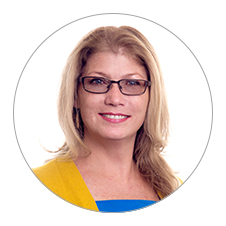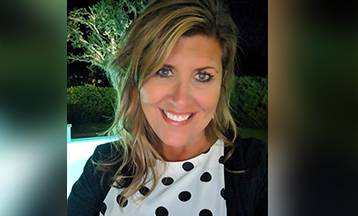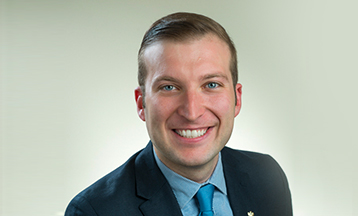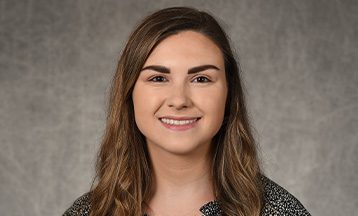-
About
Admitted Student Days
• Saturday, March 28
• Sunday, March 29
• Saturday, April 11Accepted Students: Be sure to register for one of our Admitted Student Days and explore all that Marist has to offer.
About
-
Academics
Admitted Student Days
• Saturday, March 28
• Sunday, March 29
• Saturday, April 11Accepted Students: Be sure to register for one of our Admitted Student Days and explore all that Marist has to offer.
Academics
-
Admission & Financial Aid
Admitted Student Days
• Saturday, March 28
• Sunday, March 29
• Saturday, April 11Accepted Students: Be sure to register for one of our Admitted Student Days and explore all that Marist has to offer.
Admission & Financial Aid
-
Student Life
Admitted Student Days
• Saturday, March 28
• Sunday, March 29
• Saturday, April 11Accepted Students: Be sure to register for one of our Admitted Student Days and explore all that Marist has to offer.
Student Life
- Athletics
Image of Dede Hourican

Dede Hourican
Wappingers Falls, NYAcademic School
Communication & the Arts, Professional ProgramsCampus
New YorkGrowing up in New York’s Putnam County, Dede Hourican never thought she would attend college. According to Hourican, “I expected to graduate from high school and go to work, which is what I did.” Her first job out of high school was as a bookkeeper at a high-fashion photography studio in New York City. Later, she went on to work at IBM in the 1990s and 2000s. Now, more than three decades later, Hourican has completed both her undergraduate and graduate degrees at Marist and was recently appointed Assistant Dean for the College’s School of Computer Science and Mathematics, proving that perseverance pays off, and that it is never too late to get a college education.
Hourican’s experience as an adult undergraduate student is not unusual, and Marist’s School of Professional Programs (SPP) offers multiple programs catering to working adults’ unique needs. This population is typically balancing work and family, managing a home, and devoting time to civic obligations, often simultaneously! Adult students benefit from the flexibility provided by online and hybrid classes, as well as personalized advising that helps them maximize academic credit from previous institutions and/or life work credit. SPP offers degree completion programs in the areas of Management Studies, Organizational Communication, Organizational Leadership, Information Technology Management, and Behavioral Studies.
Pursuing a college degree as an adult requires both resolve and commitment, but Hourican knew she had to begin somewhere, so she took classes one at a time at a community college to build up her confidence. Upon completing her associate’s degree, she got a position at a local four-year college and began taking classes there in subjects such as digital media. While Hourican appreciated the small class size and hands-on learning activities, it was sometimes difficult being the only adult undergraduate in the room. She recalls, “The other students were great, but it’s just not the same sense of camaraderie. I was never able to attend study sessions at 10 p.m. because I had to get up for work the next day!”
Eventually, Hourican got a job at Marist as the Academic Technology Support Specialist and was impressed with how many of her co-workers were pursuing their degrees, both undergraduate and graduate. Encouraged by her peers, she started taking classes for the hybrid BS in Integrative Studies at night after work. Says Hourican, “It was helpful being in class with others who were in my situation of working and going to school. We could commiserate because we were in the same boat.” She received support, advice, and encouragement along the way from Marist faculty and staff. Assistant Director of Student Services Jennifer Becker kept Hourican on track course after course by constantly reminding her “You can do this! We believe in you.” Hourican recalls an insightful piece of advice from faculty member Ismay Czarniecki: “She told me that, as an adult student, you can’t delay because you’ll never finish your degree if you do. I took that advice to heart and pushed through even when it was hard.” Adds Becker, “Dede persisted and excelled because Marist had the scheduling flexibility to keep things balanced with work and life. We encouraged her, but she earned every bit of her degree. It took her five years to finish 17 classes, but that is just a testament to Dede’s perseverance.”
Hourican finished her BS in Integrative Studies in 2013, but she didn’t stop to rest on her laurels. “True story – after walking across the stage to receive my diploma, the first words I heard were from [Director of Adult Undergraduate Admission] Patti Burns, who asked me, ‘So what degree are we going for next?’” After a short break, Hourican continued on to pursue her master’s degree because of the encouragement of people like Becker and Burns. “They’re the reason I started the MA in Integrated Marketing Communication (IMC). They told me how much they believed in me and that doors of opportunity would continue to open.” Indeed, doors did open for Hourican, and soon after completing her undergraduate degree, she received a promotion to Senior Academic Technology Support Specialist.
Working in the Office of Academic Technology (now Digital Education), Hourican was interested in the idea of ensuring that technology is useful for people and improving the user experience. She adds, “For me, the important part about a learning management system, for example, is not what it can do, but how it can help people learn. What value is it adding?” As a student in the IMC master’s program, Hourican had the opportunity to delve into questions related to her professional interest: How can we get technology into the hands of people who could benefit from it? Did the technology do what it said it would do? If it failed, why? She also enjoyed the experience of being a graduate student, particularly the group work that is a key component of the IMC program: “I had the opportunity to be in class with students just as motivated as I was, and I found that age is not a barrier to learning or to camaraderie.” Hourican notes that the textbook and materials she used for her IMC degree are currently sitting on her office bookshelf, and she refers to them on a regular basis.
In 2018, Hourican walked across the graduation stage once again to accept her master’s degree. Having worked so hard for so long, she is now enjoying the fruits of her labor, those “doors of opportunity” she had hoped would open. As Assistant Dean in the School of Computer Science and Mathematics, Hourican is the school’s external connection to the business community, building partnerships to advance programs within the school. She also serves as the Director of the Institute for Data Center Professionals (IDCP), an online certificate program for workforce professionals across the globe, and coordinator of the Mid-Hudson Regional Business Plan Competition. It’s a role with significant responsibility, and she looks forward to mastering it. Currently, Hourican is planning a marketing campaign to drive enrollment in IDCP, and she will draw on her IMC classwork to do it.
Burns describes Hourican’s academic trajectory in this way: “Through sheer determination and dedication, Dede was able to advance her career and hone her skills. Her story is an inspiration to prospective adult students, proving that hard work and perseverance lead to new opportunities.” Hourican has advice for other adult students thinking about going back to school to complete their degrees, either undergraduate or graduate. “Never be afraid to try. The online format gives you the flexibility you need, so schedule time for classwork in the early morning or on your lunch break. Life will happen in between, but you can do what it takes to finish.” She adds, “People know that a Marist education has value. With a Marist degree, people know that you’re a cut above.” In Hourican’s case, there is no doubt about that.



